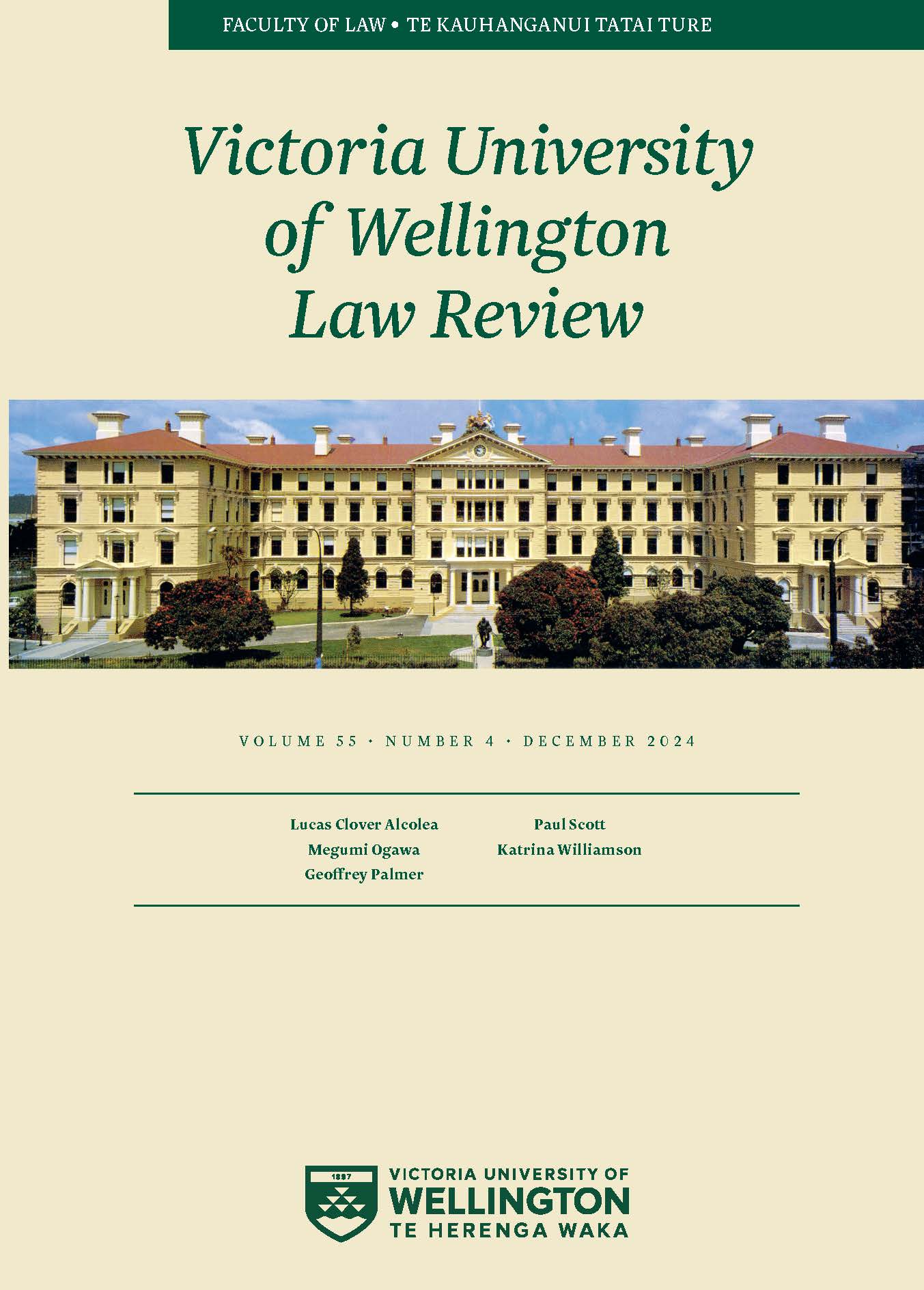Protecting Aotearoa Democracy by Reforming Parliament
DOI:
https://doi.org/10.26686/vuwlr.v55i4.9868Abstract
New Zealand faces an unstable world, perhaps more so than any time since the Second World War. The geopolitical situation is not the only issue. There has been a noticeable decline of democracy in many countries during the last 20 years. The tendency has been toward populism and authoritarianism, even dictatorship. Liberal democracies have come under challenge and people who live in them are uneasy. Democracy has always been a fragile form of government, difficult to establish and relatively easy to lose. New Zealand is one of the world's oldest democracies, establishing universal male suffrage in 1879 and women getting the vote in 1893. New Zealand has had a vigorous commitment to strong democratic institutions. The rule of law, however, is more vulnerable due to executive domination. Values can ebb away without everyone noticing. To guard against such developments in New Zealand, this article suggests that reforming the New Zealand Parliament would be a sound way to keep the commitment to representative democracy. Some of the 12 recommended measures are significant changes, such as increasing the number of MPs to increase the accountability of the executive to the House of Representatives, and better regulating financial donations to political parties. Others are smaller, such as giving better bite to the Official Information Act 1982 and regulating lobbying. Together the recommended measures amount to a significant reform package with which to face uncertain times.
Downloads
Downloads
Published
How to Cite
Issue
Section
License
Authors retain copyright in their work published in the Victoria University of Wellington Law Review.


